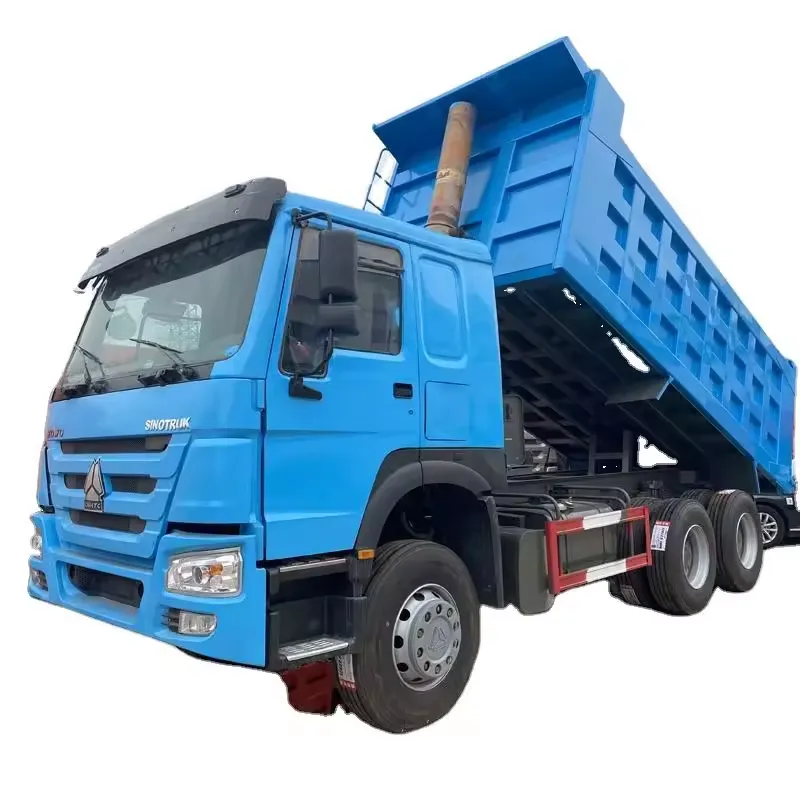24-D10, Building 3, Aosheng Building, Shunhua Road Street, Jinan, Shandong, China +86 13953140536 [email protected]
In the dynamic world of logistics and transportation, tractor heads have emerged as the driving force behind efficient bulk cargo movement. These powerful machines serve as the primary movers for various trailer configurations, enabling the seamless transportation of goods across continents. The versatility and reliability of tractor heads have made them indispensable assets in the transportation industry, particularly when it comes to handling large volumes of cargo.
The evolution of tractor heads has closely mirrored the growing demands of the global supply chain. From humble beginnings as simple pulling units, they have transformed into sophisticated machines equipped with advanced technology and enhanced capabilities. Today's tractor heads incorporate cutting-edge features that optimize fuel efficiency, maximize payload capacity, and ensure safer operations on diverse terrains.
The manufacturing sector heavily relies on tractor heads for transporting raw materials and finished products. These powerful vehicles excel at moving heavy loads of steel, concrete, timber, and other construction materials between production facilities and distribution centers. The robust design of tractor heads ensures stable handling of heavyweight cargo while maintaining optimal fuel efficiency during long-haul journeys.
In the context of just-in-time manufacturing, tractor heads play a crucial role in maintaining production schedules. Their reliability and quick turnaround capabilities enable manufacturers to coordinate deliveries precisely, reducing warehouse costs and improving overall operational efficiency.

The agricultural sector depends extensively on tractor heads for transporting harvested crops, livestock, and farming equipment. These vehicles are particularly valuable during peak harvest seasons when large quantities of produce need to be moved quickly to processing facilities or storage locations. The ability of tractor heads to handle specialized trailers, such as refrigerated units for perishable goods, makes them essential for maintaining food supply chains.
Modern tractor heads equipped with advanced tracking systems help agricultural businesses monitor their shipments in real-time, ensuring product freshness and timely delivery to market. This capability has revolutionized how the food industry manages its logistics operations.
The energy sector relies heavily on tractor heads for the safe transportation of fuels, chemicals, and other hazardous materials. These specialized vehicles are equipped with enhanced safety features and comply with strict regulatory requirements for handling dangerous goods. The robust construction and advanced braking systems of tractor heads ensure secure transportation of volatile substances across varying terrain and weather conditions.
Modern tractor heads used in the energy sector often incorporate sophisticated monitoring systems that track temperature, pressure, and other critical parameters during transport. This level of oversight helps prevent accidents and ensures regulatory compliance throughout the journey.
As the renewable energy sector continues to grow, tractor heads have become crucial for transporting wind turbine components, solar panels, and other clean energy equipment. These vehicles are specially configured to handle oversized and irregularly shaped loads, making them indispensable for renewable energy infrastructure development.
The adaptability of tractor heads to various trailer configurations allows them to transport both standard and specialized renewable energy components efficiently. This versatility has contributed significantly to the rapid expansion of green energy projects worldwide.
In the construction industry, tractor heads are essential for moving heavy machinery and equipment between project sites. Their powerful engines and robust chassis design enable them to handle the transportation of excavators, cranes, and other construction equipment safely and efficiently. The ability to navigate through challenging terrain makes tractor heads invaluable assets in infrastructure development projects.
Construction companies rely on tractor heads to maintain project schedules by ensuring timely delivery of equipment and materials. The versatility of these vehicles in handling different types of trailers and load configurations contributes to improved project management and cost efficiency.
The transportation of building materials represents another crucial application for tractor heads. From structural steel and concrete elements to prefabricated components, these vehicles ensure reliable delivery of construction materials to project sites. Their capacity to handle heavy loads while maintaining stability makes them ideal for transporting bulk building supplies.
Modern tractor heads equipped with advanced suspension systems help protect sensitive building materials during transport, reducing damage and ensuring quality preservation. This capability is particularly important when handling delicate or precisely engineered construction components.

Tractor heads are specifically designed for pulling heavy trailers and handling large loads. They feature more powerful engines, stronger chassis construction, and specialized coupling systems that enable them to safely transport various types of cargo. Unlike regular trucks, tractor heads can be paired with different trailers, offering greater versatility in bulk transportation applications.
Tractor heads improve transportation efficiency through their high payload capacity, fuel-efficient engines, and ability to handle multiple trailer types. They enable businesses to move larger quantities of goods in fewer trips, reducing operational costs and environmental impact while maintaining reliable delivery schedules.
Modern tractor heads come equipped with advanced safety features including electronic stability control, anti-lock braking systems, collision avoidance technology, and comprehensive monitoring systems. These features help prevent accidents, protect valuable cargo, and ensure driver safety during long-haul transportation operations.